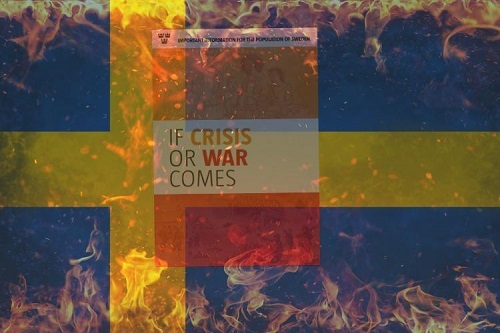YT photo
By
Tom Arms
The last time Sweden fought in a war was 1809. They lost. Russia won Finland. Since then the Swedes have been belligerently neutral.
It is not that Sweden does not believe in defence. It is one of the few Western countries that still has conscription and is armed to the teeth. Sweden is the super power of the Baltic. It just doesn’t want to have to use its firepower.
But things are changing. The reason for the change is Putin’s aggressive foreign policy in the Baltic region and Eastern Europe. These have included a mystery submarine in Swedish waters (Russia denied it was theirs) and regular flights over Swedish airspace by Russian war planes.
The result is that Swedish Prime Minister Stefan Lofven is under strong pressure to join NATO. Opinion polls now show 43 percent of the voters favour membership of the alliance with 37 percent against. All four opposition parties have come out in favour of joining the North Atlantic Treaty Organisation. NATO Secretary-General Jens Stoltenberg says Sweden would be welcome.
To demonstrate that the government is worried about Russia and seriously considering ending its 200-plus years of neutrality, it last week sent a 20-page pamphlet to all 4.8 million of the country’s households telling them what to do in case of war.
It explains how people can secure basic needs such as food, water and heat, what warning signals mean, where to find bomb shelters and how to contribute to Sweden’s “total defence”.
Illustrated with scary pictures of sirens, warplanes and families fleeing their homes, the pamphlet also prepares the population for dangers such as cyber and terror attacks, climate change, and includes a page on identifying fake news.
The leaflet advises people to think about how to cope if there was no heating, food became difficult to buy, prepare and store, there was no water in the taps or toilet, and cash machines, mobile phones and the internet stopped working.
It advises checking the source of all information, warning that “states and organisations are already trying to influence our values and how we act … and reduce our resilience and willingness to defend ourselves”.
A detailed page of “home preparedness tips” advises the population to stock up on water bottles, warm clothing and sleeping bags, and “non-perishable food that can be prepared quickly requiring little water or can be eaten without preparation”.
In the event of armed conflict, it says, “everyone is obliged to contribute and everyone is needed” for Sweden’s “total defence”. The pamphlet says anyone between 16 and 70 “can be called to assist in the event of the threat of war and war”.
The Swedish pamphlet is not the week’s only evidence that we are moving into Cold War Two. The FBI has just announced that it stopped a cyber-attack against Ukraine. On top of that, Dutch investigators issued their final report on the 2014 crash of Malaysian Airlines plane MH17. They said the plane was definitely shot down by a Russian missile fired from a Russian launcher in Russian territory. Moscow, of course, denies everything.
Tom Arms
I am a journalist, entrepreneur and historian with extensive experience in print, web and broadcast journalism. I started as a diplomatic correspondent, wrote several books (The Falklands Crisis, World Elections On File and the Encyclopedia of the Cold War), and then in 1987 started my own business (Future Events News Service, www.fensinformation.com) which over 25 years established itself as the world and UK media’s diary. Our strapline was: “We set the world’s news agenda.” I sold FENS in December 2012 but retained the exclusive broadcast rights to all of FENS data. To exploit these rights I set up LookAhead TV which produces unique programmes which “Broadcasts Tomorrow Today” so that viewers can “Plan to Participate.” LookAhead has appeared regularly on Vox Africa, Radio Tatras International, The Conversation and Voice of Africa Radio.
In addition to being a syndicated broadcaster and columnist on global affairs, Tom is also available for speaking engagements and can be contacted on Twitter, Linkedin and email: [email protected].



No Comments Yet!
You can be first to comment this post!